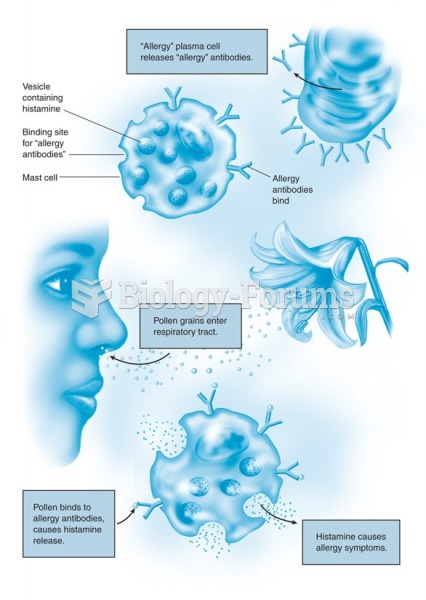Answer to Question 1
2,3,5
Rationale 1: While it may be necessary to report this reaction to the FDA, it is not the bedside nurse's responsibility to do so.
Rationale 2: The prescriber should be notified as this is an unexpected event. A change in therapy is likely to be required.
Rationale 3: The hospital pharmacist should be advised of this possible reaction.
Rationale 4: There is no reason for the bedside nurse to notify Medicare.
Rationale 5: Hospital risk management should be notified of this event. A variance report may be required.
Global Rationale: While it may be necessary to report this reaction to the FDA, it is not the bedside nurse's responsibility to do so. The prescriber should be notified as this is an unexpected event. A change in therapy is likely to be required. The hospital pharmacist should be advised of this possible reaction. There is no reason for the bedside nurse to notify Medicare. Hospital risk management should be notified of this event. A variance report may be required.
Answer to Question 2
1,4
Rationale 1: The time of highest risk of birth defects is probably in the first trimester, and this client is past that time. It is not possible to predict that there is no risk from drug consumption.
Rationale 2: While drug avoidance is preferred, in some cases it is necessary. If the nurse has concerns about the drug prescribed, collaboration with the prescriber is indicated.
Rationale 3: Without further information about which drug was prescribed, it is non-therapeutic to make the client doubt the prescriber's choice of therapy.
Rationale 4: With category A drugs, the risk of fetal harm is unlikely.
Rationale 5: This statement is non-therapeutic and dismisses the client's concern.
Global Rationale: The time of highest risk of birth defects is probably in the first trimester, and this client is past that time. It is not possible to predict that there is no risk from drug consumption. With category A drugs, the risk of fetal harm is unlikely. While drug avoidance is preferred, in some cases it is necessary. If the nurse has concerns about the drug prescribed, collaboration with the prescriber is indicated. The statement of don't' worry is non-therapeutic and dismisses the client's concern.







